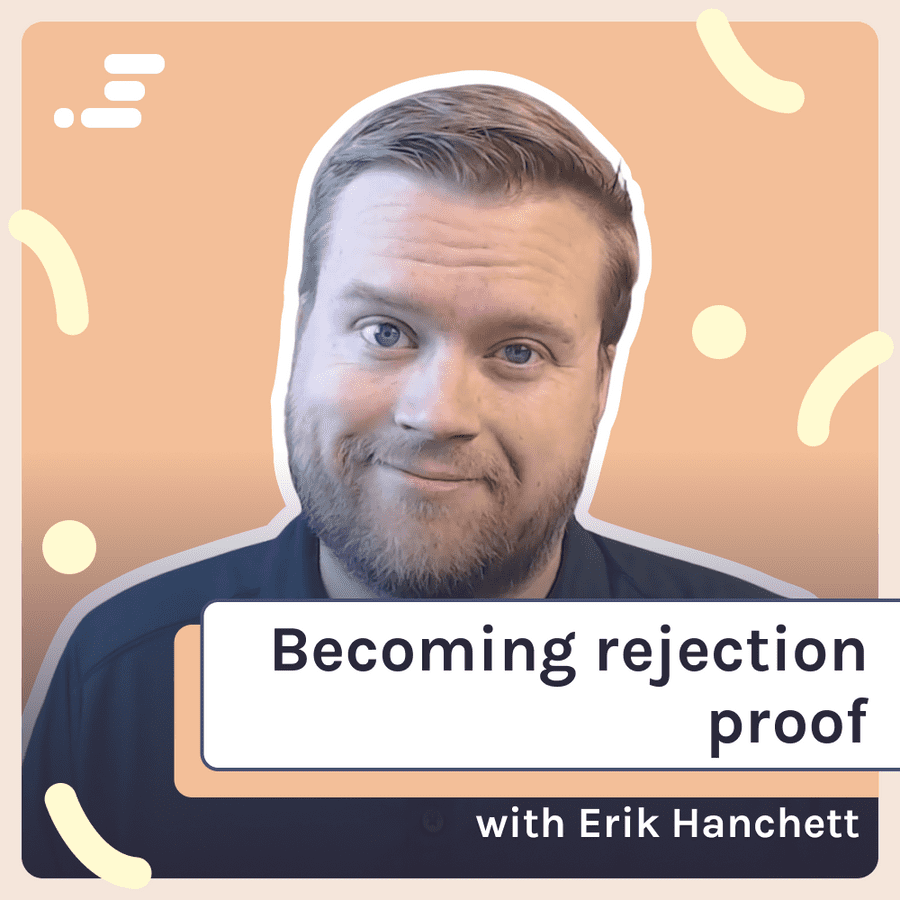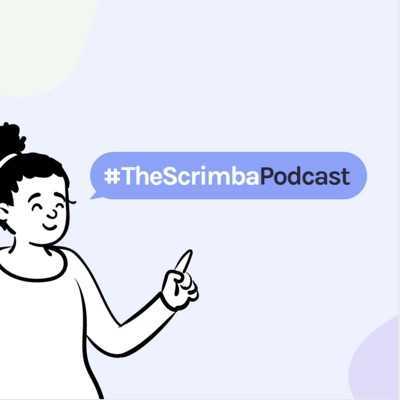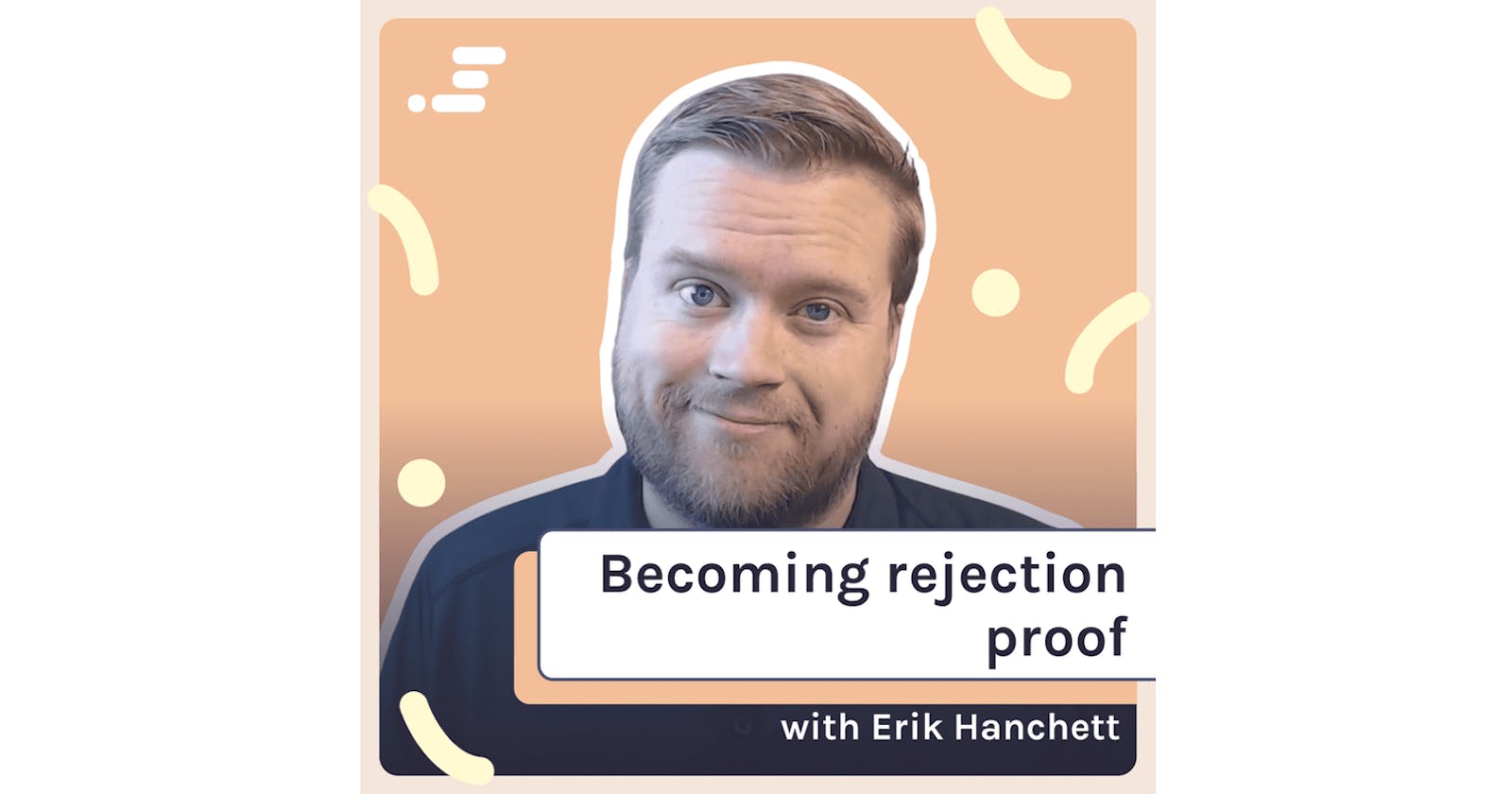Erik Hanchett: Advice on how to get your first developer job from an Amazon Front-End Engineer
Are you looking for your first job in tech? In this week's article, Amazon developer Erik Hanchett joins us on a Scrimba Podcast to give us the advice needed to land our first junior developer job!

Introduction
In this Scrimba Podcast, host Alex Booker inquires from Erik, "his streamlined and specific advice on how he would approach getting a developer job today!"
About Erik
Erik currently works today as a Front End Engineer at Amazon Web Services.
He has a Bachelor's Degree in Computer Science and an M.B.A. in Entrepreneurship from the University of Nevada, Reno.
Erik is also the co-creator and co-host of my favorite Podcast, Self-Taught or Not!
Interviewing
Erik tells us that interviewing is a skill that we have to get good at.
Rejection is inevitable, and it is something that we need to get better at handling. Erik says not to take rejection personally.
The strategy and advice that Erik gives, "take notes."
Take notes of:
- The questions asked
- What went well and what did not
- The feedback given after the interview
Learn how Erik got into the tech industry by listening to his story on the Self-Taught or Not Podcast!
From Call Center Failure To Developer And Author - Erik's Story - Episode 21
Take advantage of amazing resources
Scrimba Podcast host Alex asks Erik, "If you were looking for a junior developer role today, what strategy would you employ?"
If Erik was a junior dev today, he tells us that he would first take advantage of all of the amazing modern resources available.
Amazing resources
- Scrimba
- FreeCodeCamp
- YouTube tutorials
Erik explains to us that he will utilize these free resources until he can "talk intelligently about these technologies" and "create websites."
Applying for jobs
Erik tells us there's a lot of competition and that we need to stand out, even to land an interview.
Erik explains the two approaches he has seen, "the spray and pray" method and the "the networking" method.
The spray and pray method is to send out hundreds of resumes applying to hundreds of jobs.
Erik prefers the networking approach where you narrow down 10 to 15 jobs that you really want and then see if there's a way you can network with the people at those jobs.
Ways you can network
- Going to meetups
Erik advises us to research and learn about the company's you want to work for and then reach out to the employees at that company.
Be upfront with the people you are trying to network with, and do not be deceiving.
Erik recommends introducing ourselves, letting them know we are interested in employment at that company, and referring them to our public work.
Working in public
Now Erik brings up the topic that seems to keep arising in all of my recruitment-related articles, working in public!
"Another approach," Erik tells us, "There's this idea that you can work in public."
Working in public
- Content creation
- Social networking
- Personal branding
Content creation
Content creation can be YouTube videos, blog posts, courses, or other means of teaching/documenting what you are learning.
Social networking
You can share your created content on social networks, such as Twitter, Linked In, Instagram, Facebook, etc.
Personal branding
In time, you will develop your personal brand by creating content and sharing it on social networks.
Having an online presence through content creation, social networking, and personal branding helps us stand out from the crowd and provides many opportunities!
To learn more about learning in public, check out my article: Shawn Wang (Swyx): Actionable tactics that will help you to become hireable
Be sure to listen to the Podcast!
Which framework/Library should you learn?
The consensus is clear; it does not matter which framework or library you choose to learn.
At the time of writing this article, React is the most popular and taught as part of most curriculums.
Erik makes a profound statement when he advises us to research local companies, find out the framework/tech stack they are using, and then learn it!
Erik further advises us to create blog posts/projects with the technology used at the companies we want to work for, publicly display them, and then share them on our social networks, tagging the company and its employees.
"Try to get on their radar," Erik tells us, "follow them back, and then see who responds. You might be able to get ahold of a hiring manager"
Completing courses
When it comes to hiring junior developers, Erik tells us, "to see someone that has the potential to learn is great!"
Erik continues, "Having completed courses from Scrimba or freeCodeCamp or some of these other places is great to see because then you know they've learned these things themselves."
After completing courses and earning certificates, you can display them on your LinkedIn, share them on your social networks, add them to your resume and GitHub.
Get a little better every day
Erik encourages us to "get a little better every day."
Erik gives a fantastic analogy during the Livestream; he compares the approach to learning to code to the approach to hiking.
There is a hiking trail that Erik enjoys. He tells us when he first started, he could make it about half a mile before getting winded.
Then day by day, he made it a little bit further. After a few weeks, Erik was capable of making it to four miles.
When learning how to code, we start by learning HTML, CSS, and JavaScript.
Then we realize that there is a lot more to learn, and we may become overwhelmed.
Erik encourages us to learn incrementally to get a little better every day.
What content would you like to see on Erik's YouTube channel? Leave a comment and let him know!
Recommended book
Atomic Habits: An Easy & Proven Way to Build Good Habits & Break Bad Ones
Author: James Clear
Erik has read the book Atomic Habits, and he believes that it's now required reading for every Podcast and entrepreneur!

The Scrimba Podcast
Hosted by: Alex Booker
Be sure to check out other episodes of the Scrimba Podcast!
Hear from inspiring developers about how they found meaningful and fulfilling work that also pays them well. On the #StoriesByScrimba Podcast, you'll hear motivational advice and job-hunting strategies from developers who've been exactly where you are now. We talk to developers about their challenges, learnings, and switching industries in the hopes of inspiring YOU. This Podcast provides the inspiration, tools, and roadmaps to move from where you are to work that matters to you and uniquely fits your strengths and talents.
🔊 Scrimba Podcast: spotify
🔊 Scrimba Podcast: apple
🔊 Scrimba Podcast: listennotes
🔊 Scrimba Podcast: podcastaddict
🔊 Scrimba Podcast: podcastguru
🔊 Scrimba Podcast: transistor.fm

Erik's Podcast
Covers the do's and don'ts of software development, hosted by Dylan Israel & Erik Hanchett
This invaluable Podcast discusses tech industry topics from the perspective of a self-taught developer and a traditional Computer Science Degree graduate. They also cover their learning journey, from their start in the tech industry, leading up to their current jobs a FAANG company, Amazon!
I am optimistic that they will come back for another season with the encouragement and support from all of us! Please reach out to them, give them a shout-out and let them know... "WE WANT SEASON 4"!
Erik's Books
If you are interested in learning Vue, then Erik is the one to learn from!
Erik is known in the tech industry as being the "Vue Guru"! In addition to the Vue content taught on his YouTube channel, he also wrote books on the subject!
- 🔗 Vue.js w akcji - Erik Hanchett, Benjamin Listwon [KSIÄĹťKA]
- 🔗 Vue.js in Action
- 🔗 Ember.js Cookbook
Erik's Links
Conclusion
Taking Erik's advice on interviewing, utilizing modern resources to learn, networking, and creating an online presence through working in public, will assist us in standing out from the crowd and ultimately help us land our first junior developer job!
Did Erik's advice on getting your first developer job help you? Would you like Erik to continue the Self-Taught or Not Podcast? Please share the article and comment!

